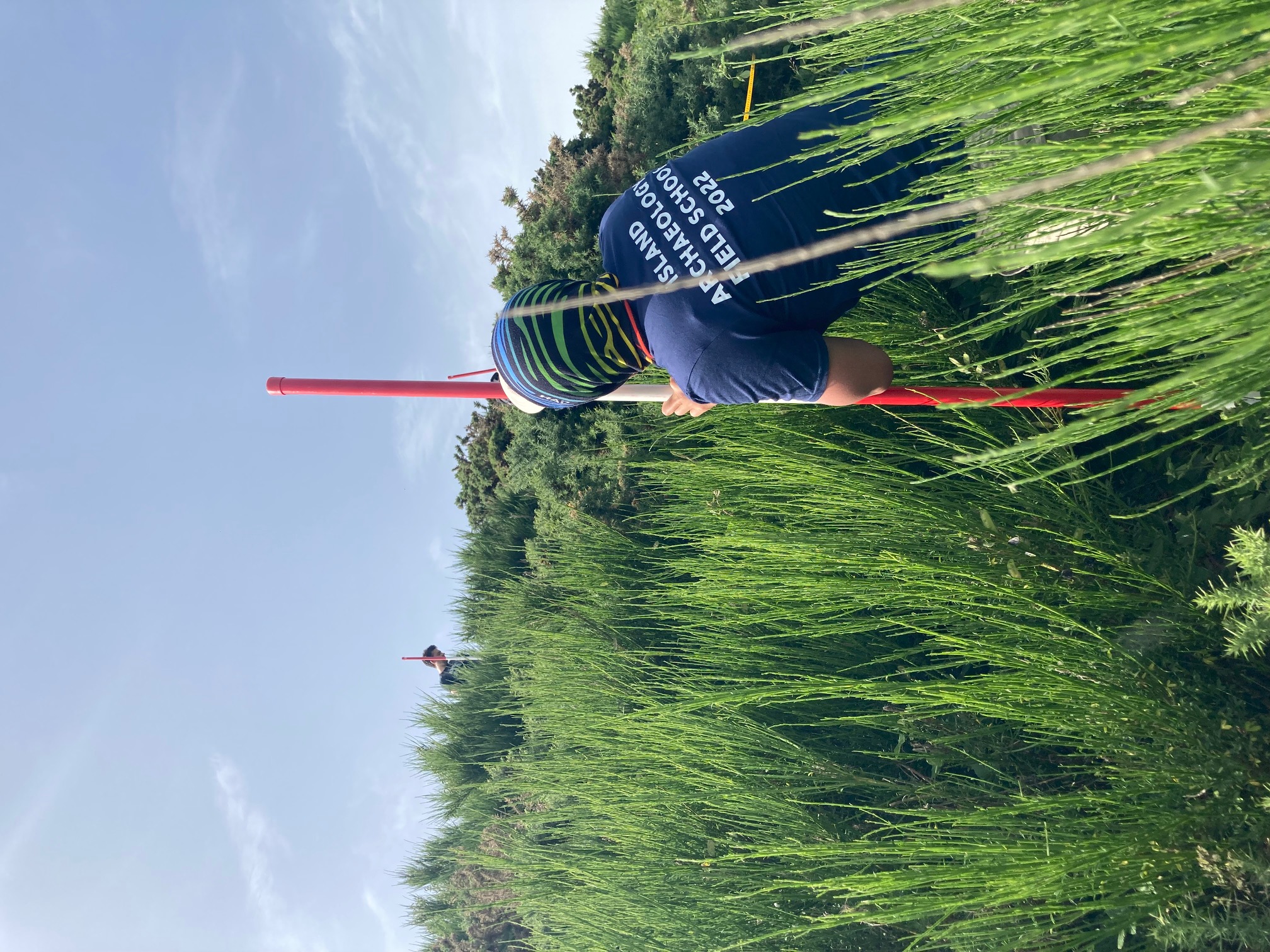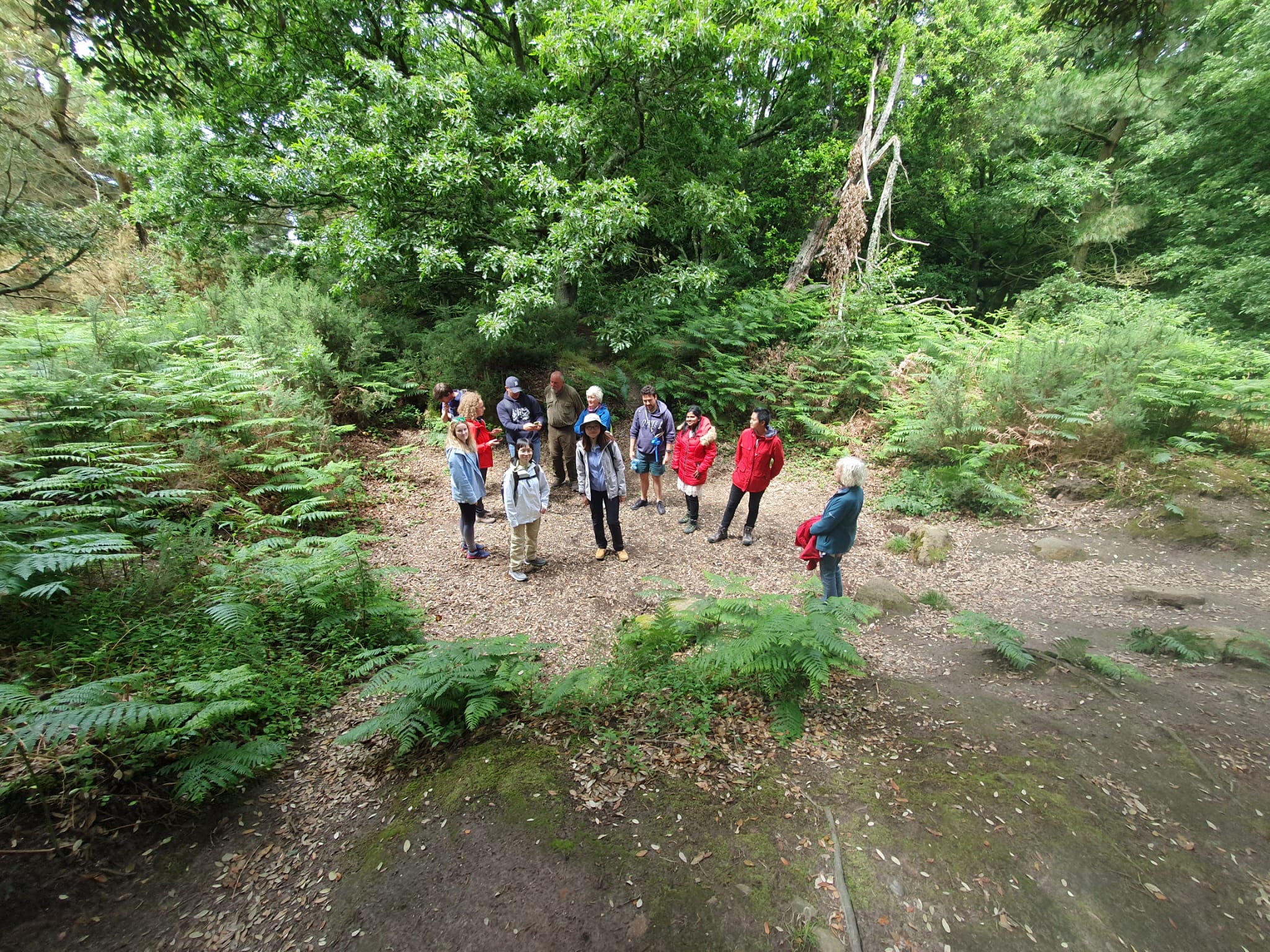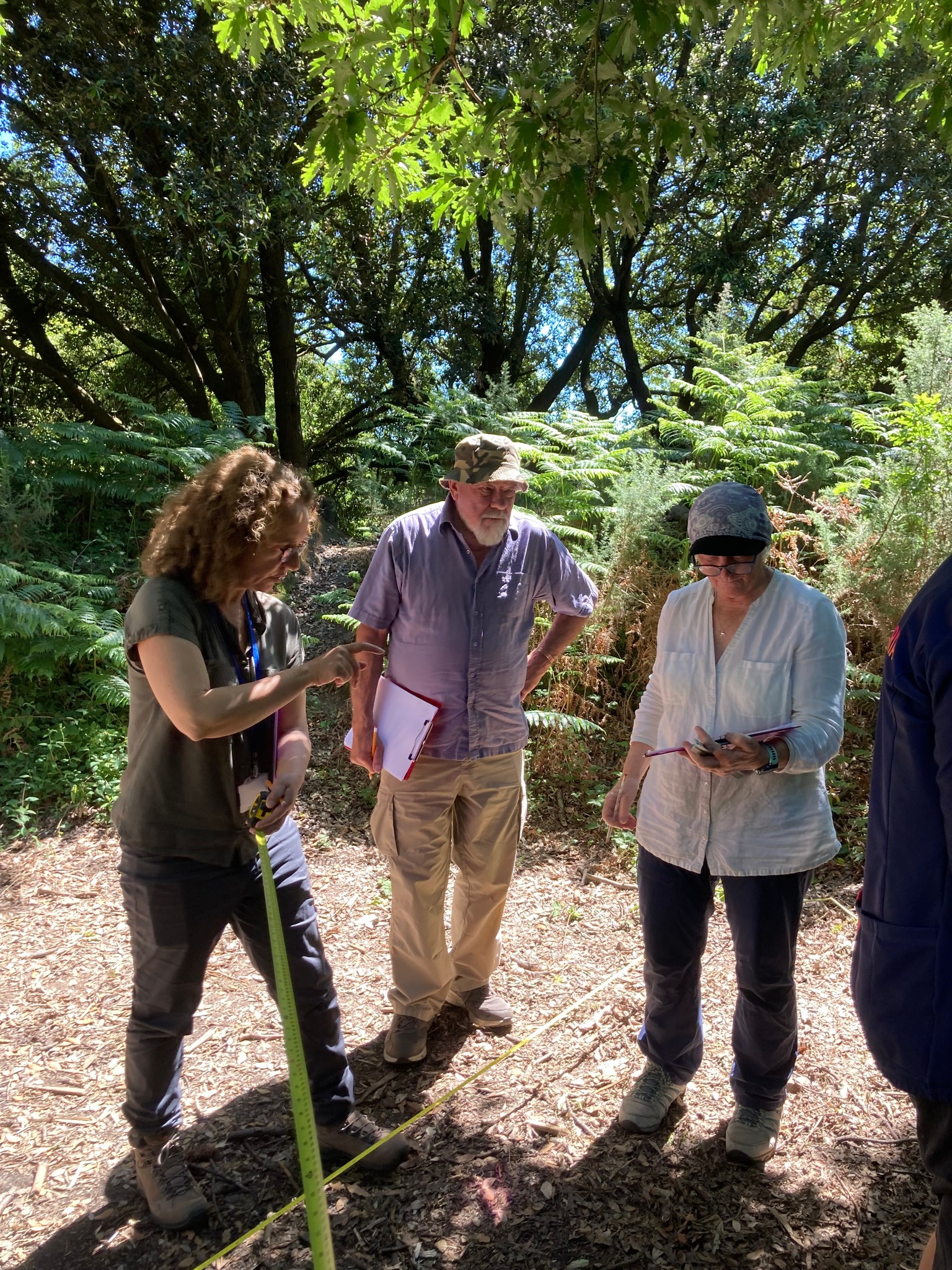30.09.2022
May-June 2022 Island Archaeology Field School in Jersey
Like many islands, Jersey has an archaeological record that is surprisingly rich and disproportionate to its size, spanning some 250,000 years, from the earliest Palaeolithic occupation throughout later prehistory , into the Iron Age, Roman period, and historical times leading to the German occupation.
Impressions of the JICAS Archaeology Summer School in Jersey (May 30th to June 10th) by Helen Dawson, who taught with Dr. Matt Pope (UCL). The field school was coordinated by Dr. Sean Dettman of the Jersey International Centre of Advanced Studies in collaboration with Jersey Heritage.
“Like many islands, Jersey has an archaeological record that is surprisingly rich and disproportionate to its size, spanning some 250,000 years, from the earliest Palaeolithic occupation (when Jersey was still attached to France) throughout later prehistory (when it became an island around the 6th millennium BC), into the Iron Age, Roman period, and historical times leading to the German occupation.
This makes it an ideal place to study long-term process in the light of changing degrees of insularity. Students had classes in the morning and site visits in the afternoon. I guided the students to two sites in particular, La Hougue de Vinde, a Neolithic barrow grave, and Le Catel de Lecq, an Iron Age hill fort. Jersey Heritage recently completed a LiDAR survey of Jersey which has revealed potential new sites on the island and will form the basis of our future research strategy. This Summer, we did preliminary survey work aimed at assessing the feasibility of starting a new field project next year.”
Back




